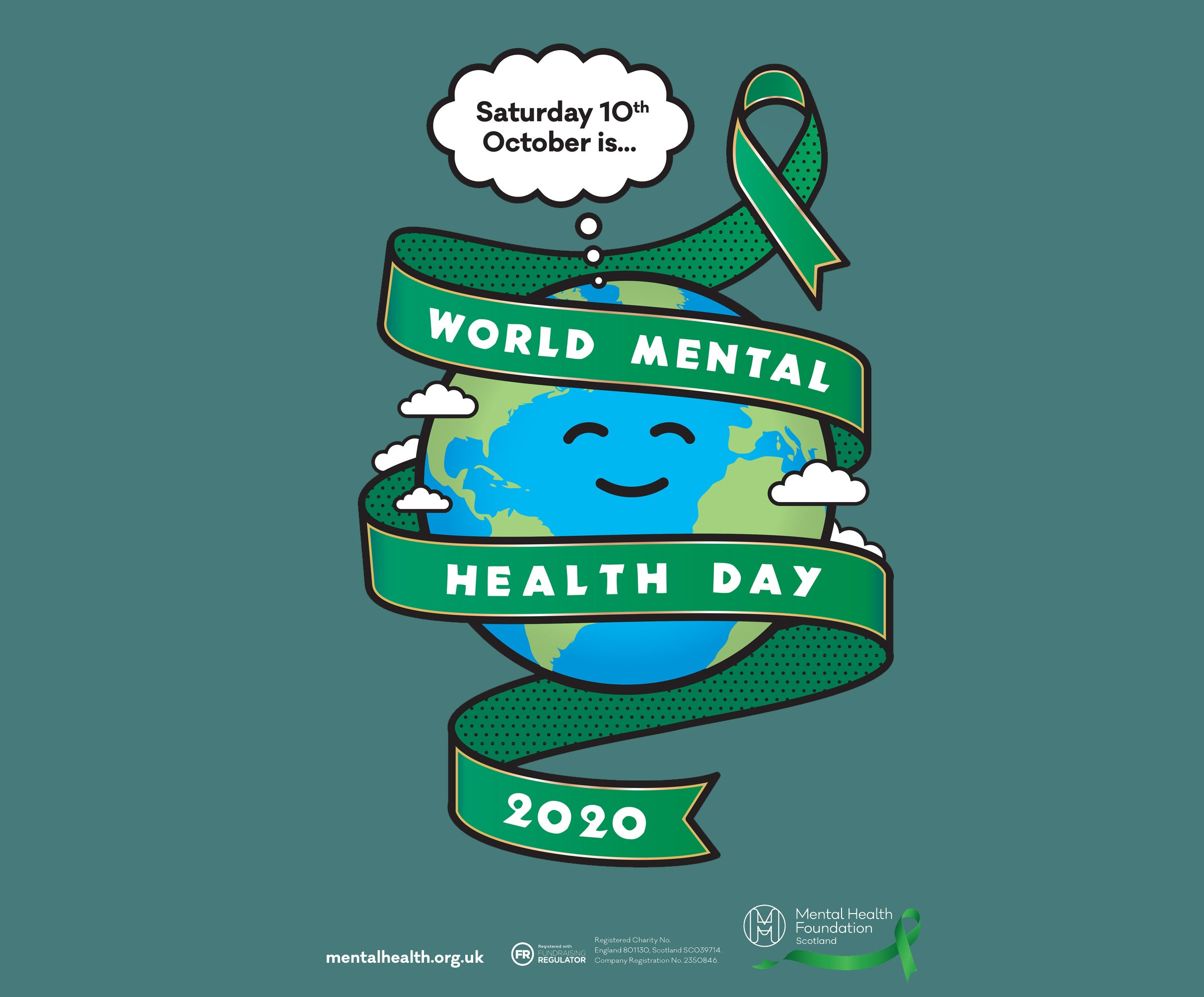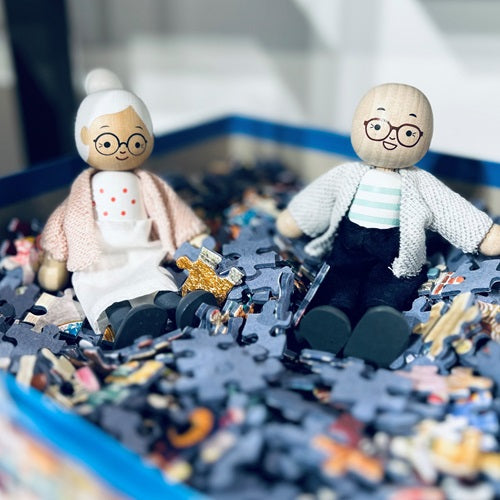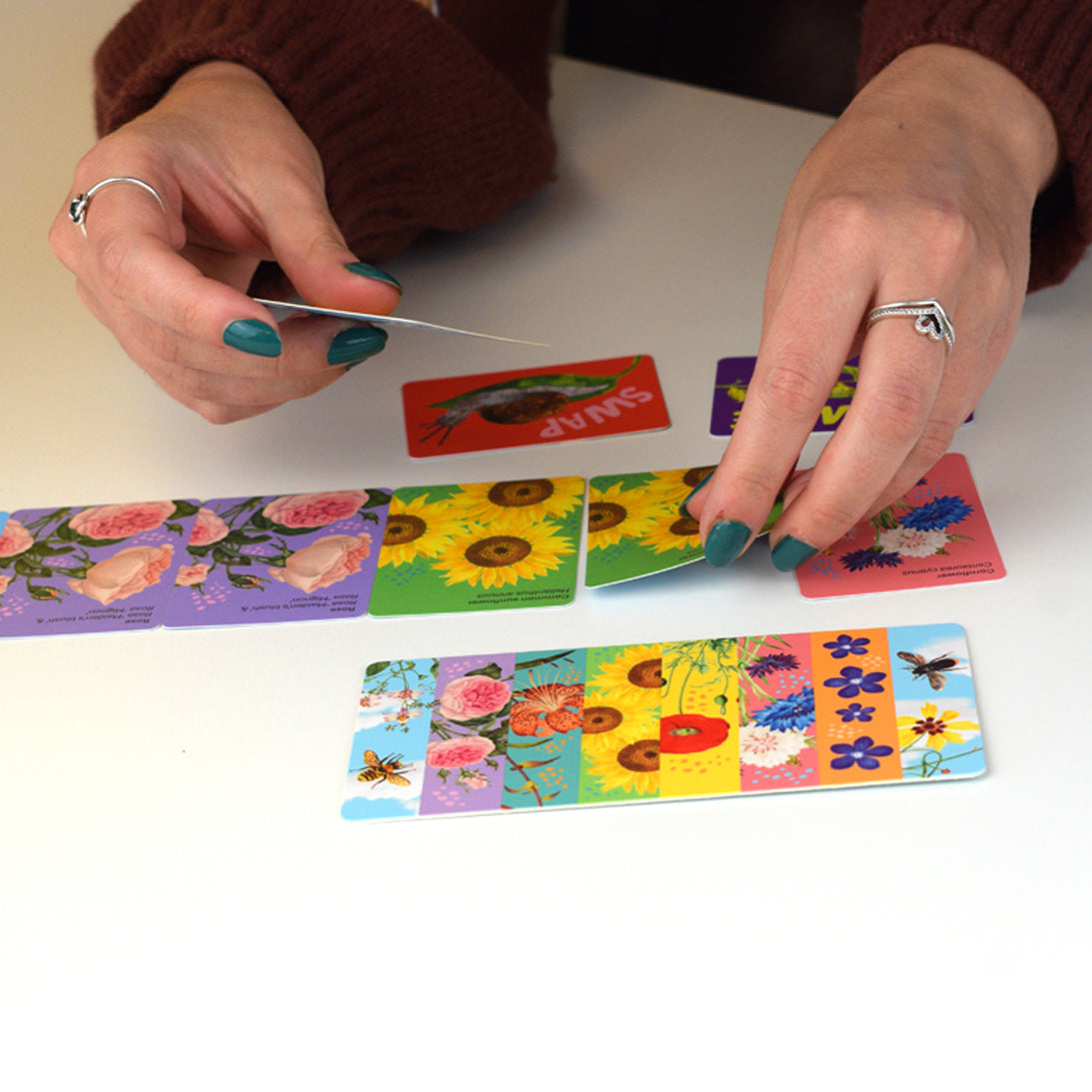
October 10th is World Mental Health Day, and was originally observed in 1992. We’ve already discussed the mental health benefits of jigsaw puzzling in a previous blog and this year it’s more important than ever to recognise the value of mental health and why it is so important to commemorate and celebrate World Mental Health Day.
The impact of COVID-19 has been felt around the world. It is an unprecedented global health emergency, and has also impacted on the mental health of millions of people. Anxiety, loneliness, uncertainty and social distancing has all meant that people have become more isolated within themselves and are under more emotional distress (wfmh.global, 2020). According to research conducted by Mind UK, with over 16,000 participants, 60% of the adults and 68% of young people who participated said that their mental health worsened during lockdown. New mental health problems have developed as a result of the pandemic, while others with existing mental health problems have gotten worse (Mind UK, 2020). These are grave statistics, and it is essential that mental health is given the attention that needs to help people who are suffering.
Shop Writer's Block (1000pc) here
World Mental Health Day was created to increase awareness and education about mental illness, and to ensure that nobody experiences a mental health problem alone. This year the theme of Mental Health Awareness Day is “mental health for all.” The organisers say that mental health is a human right, and it is time that it was made available for everyone.
“Quality, accessible primary health care is the foundation for universal health coverage and is urgently required as the world grapples with the current health emergency. We therefore need to make mental health a reality for all – for everyone, everywhere.” (Wfmh.global, 2020)
Mind UK reports that loneliness and mental health are naturally linked (Mind.org, 2018), and with people isolating from one another during lockdown it is even more important that people can find a way of bonding with each other. Jigsaw puzzles are a fantastic way to connect with friends and family, and even create new relationships through puzzle clubs, exchanges, and meet-ups. For older people shielding, it may be that they are able to bond with the younger generations in their family bubbles and spend some quality time together over a jigsaw.

This year we created our Rainbow Heroes – In Aid of Samaritans as a way to give back and say thanks to our essential workers throughout the pandemic. We also wanted to show our support to Samaritans who have also played a vital role over the year, providing emotional support to anyone who is in distress, struggling to cope, or at risk of suicide. COVID-19 is the biggest challenge they have faced, and we donated £2 from each puzzle sold towards them, in order to help them continue to provide this support.
Unfortunately our Rainbow Heroes jigsaw puzzle was so popular that it has completely sold out. We are working hard to get more copies manufactured. Click here to sign up to our email alerts so that you are informed when it is back in stock.

The great thing about puzzles is that they’re not only fun, but they boost both our physical and our mental health. Dr Newton (2015) says that when we solve jigsaw puzzles, both sides of our brain are working in conjunction to piece the puzzles together. The logical left side of our brain looks at the individual pieces while the creative right side of the brain sees the big picture. Jigsaw puzzling can help make the connections between left and right side of the brain, which enhances our ability to learn, understand, and remember (Dr Newton, 2015). Additionally, we get a hit of dopamine, the hormone that regulates mood, while we puzzle. Each success, from individual pieces to the completion of the entire puzzle, boosts the dopamine levels inside our bodies, which also helps affect concentration, motivation, memory, and motor control as well (Dr Newton, 2015).
We recognise the need for this dopamine in everyone and have created our Piecing Together Collection for people with limited fine-motor skills, dementia, or visual impairments. The pieces are large, easy to handle and see, and have been carefully selected to be age-appropriate for adults, but enjoyable for all. Jigsaws can provoke memories and spark conversations with loved ones, while also improving memory as we remember where pieces can fit into the wider picture. A Cochrane review reported that various studies have been done, which show that when those living with dementia take part in activities such as jigsaw puzzles, they had increased feelings of well-being and a better quality of life, including improved communication and interactions with those around them (Cochrane, 2012).

2020’s World Mental Health Day is the most important one yet. We want everyone to feel like they have the support that they need, and we hope that jigsaws are helping people to improve their mental health.
***
If you or someone you know are struggling with mental health, you can find a list of mental health resources collated by the NHS here.
The national suicide prevention lifeline number is 1-800-273-TALK (8255). This is a free, confidential crisis hotline available to everyone, 24 hours a day, 7 days a week. You can find more information about the work they do on their website here.
Visit World Federation For Mental Health's website for more information about World Mental Health Day.
Visit Mind.org.uk and Samaritans.org for even more resources to see the incredible work the two charities are doing to support mental health in the UK.





0 comments